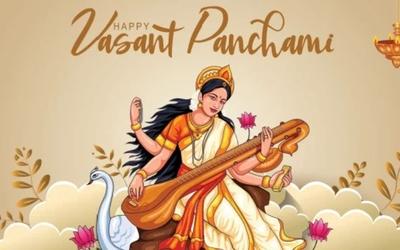Mahashivratri – Significance and Celebration
Mahashivratri is an important festival for Hindus and Shaivites. It is a Hindu festival dedicated to Lord Shiva, one of the major deities of Hinduism. Mahashivratri is celebrated every year on the Chaturdashi date of Krishna Paksha of Phalgun month. According to the South Indian calendar, this festival is celebrated on the Chaturdashi of Krishna Paksha in the month of Magha.
Importance of Mahashivratri
Mahashivratri is celebrated for many reasons. According to a legend, the marriage of Lord Shiva and Mother Parvati took place on this day. According to another legend, on this day Lord Shiva explained the purpose of creation. Mahashivratri is also considered a day of spiritual awakening when devotees can attain salvation by worshipping Lord Shiva. It is a day when devotees can attain spiritual enlightenment and salvation by worshipping Lord Shiva. It is a day when devotees pray to remove darkness and obstacles in their lives. It is a day when devotees pray to Lord Shiva to bring positivity and light into their lives.
Mythological stories related to Mahashivratri
Mahashivratri is an important Hindu festival dedicated to Lord Shiva. It is celebrated on Chaturdashi of Krishna Paksha of Phalgun month. On this day, devotees perform various rituals to worship Lord Shiva and seek his blessings.
There are many mythological stories related to Mahashivratri. Some of the most popular stories are as follows:
- Marriage of Shiva and Parvati
Once, a beautiful girl named Parvati decided to make Lord Shiva her husband. He performed rigorous penance and pleased Lord Shiva. Ultimately, Lord Shiva married Parvati.
This story is the story of the love and dedication of Lord Shiva and Parvati. It shows that anything is possible for love.
- Samudra Manthan
The gods and demons churned the ocean to obtain the nectar of immortality. During the churning, a pot of poison emerged. The poison was so powerful that it could destroy the world.
Lord Shiva drank poison to save the world. The poison turned his throat blue, hence he is called Neelkanth.
This story is the story of the sacrifice and compassion of Lord Shiva. It tells that Lord Shiva is always ready to protect his devotees.
- Dance of Shiva
On Mahashivratri, Lord Shiva performed Tandava. Tandava is a powerful dance that represents the cycle of creation, preservation and destruction.
This dance is a display of cosmic powers. It also symbolizes the eternal rhythm of life and the universe.
rituals of mahashivratri
On the day of Mahashivratri, devotees perform various rituals to worship Lord Shiva and seek his blessings.
Fasting
On the day of Mahashivratri, devotees abstain from food and water for the whole day. This is a strict fast that not all devotees can follow. Some people do partial fasting, in which they consume only fruits or milk.
Fasting is considered a symbol of devotion and dedication to Lord Shiva. It is also a way to purify the body and mind and connect spiritually.
abhishek
Abhishek is a sacred ritual in which the Shiva Linga is bathed with various sacred substances like milk, honey, curd, ghee and water. This ritual is an important part of the worship and worship of Lord Shiva.
Devotees offer this prasad on the Linga while praying. It symbolizes the purification and rejuvenation of their soul.
chanting and meditation
Devotees spend the night of Mahashivratri in prayer, meditation and chanting of sacred mantras dedicated to Lord Shiva. The most popular mantra, “Om Namah Shivay” is chanted to seek blessings and spiritual enlightenment.
Chanting and meditation help devotees connect with Lord Shiva and grow spiritually.
visit temples
On Mahashivratri, thousands of devotees visit Shiva temples to offer prayers and seek blessings. Temples are decorated with flowers and lights, creating a divine atmosphere.
Shiva’s anger
Once due to the anger of Lord Shiva the entire earth was about to be burnt to ashes. At that time Mother Parvati prayed to Lord Shiva to pacify him. Pleased by his prayer, Lord Shiva’s anger subsides. Since then Lord Shiva has been worshipped on the Chaturdashi day of Krishna Paksha. This is called the Shivratri fast. Fasting on Shivaratri ends all kinds of sorrows. Shivratri fast is observed for the birth of a child and freedom from diseases.
Ego of Vishnu and Brahma ji
Once there is a difference of opinion between Lord Vishnu and Lord Brahma. There is a rift between the two over who is superior. Then Lord Shiva appears in the form of a pillar of fire and says to Vishnu and Brahma I cannot see any end of this pillar of light. Then Vishnu ji and Brahma ji realize their mistake. And they apologize to Shiva for their mistake. Thus it is said that fasting on Shivaratri destroys a person’s ego. Human beings develop equal feelings towards all things. Man gets cured of many types of disorders.
Mahashivratri 2024 date
In the year 2024, Mahashivratri Tithi will start on March 08 at 9:57 PM and Chaturdashi Tithi will end on March 9 at 06:17 PM.





